From the Archives is a recurring series that highlights Alexandria-Washington’s archives and museum. Visitors are welcome to visit the museum during the memorial’s operating hours.
Written by Chris Ruli and Aaron Habibipour
December 16 marks the 223rd anniversary of Alexandria Lodge’s meeting to announce the death of George Washington and plan for his funeral service. The lodge’s museum and archives is fortunate enough to have the original meeting minutes from the occasion.
Dr. Elisha Dick, the lodge’s Master, called for an Emergency meeting “for the purpose of taking into consideration and adopting certain measures relative to the burial of our late worthy Brother General George Washington.” Thirty-eight members of the lodge attended the meeting along with two visitors – Charles Lesebre of Fredericksburg Lodge 4 of Virginia, Washington’s mother lodge, and James Bacon of Philadelphia Lodge 7, Pennsylvania. In fact, the meeting became so noteworthy that the lodge’s secretary David Wilson Scott, embedded a note directly onto the center of the page for future reference: “Funeral Lodge called for the burial of Gen. G. Washington, 1st Master of this lodge No. 22.
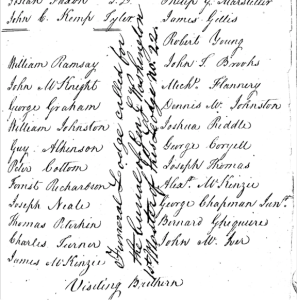
Dick opened the meeting and “delivered a suitable address to the brethren on the occasion.” They then proceeded to discuss funeral arrangements with Alexandria Brooke Lodge 47, the other Masonic lodge that met in Alexandria at the time.
“No. 47 being convened on the occasion a committee consisting of Bros Peterkin and Neale were appointed to wait on them and inform them that No 22 were ready to receive their committee and jointly with them to adopt such measures as might appear most proper for carrying into effect the purposes for which our lodges were convened – a committee from lodge no 47 consisting of bro’s Jones and Bouge came in and agreed with lodge no 22 upon the manner in which the funeral should be conducted and then withdrew.”
The lodge then discussed plans for their upcoming St. John’s Day, which traditionally served as the lodge’s installation of officers. “Ordered that Bro’s Deneale, Ramsay, and Jamisson be appointed a committee to wait on Bro Davis and request him to deliver a discourse on St John’s Day and in case he should be engaged to preach a funeral sermon they are requested to wait on Bro Maffitt and request him to deliver a discourse on that day.”
Dick then ordered that Peter Colton “wait on the Federal City Lodge and invite them to join in the funeral procession on Wednesday at Mount Vernon at 12 O’clock if fair or on Thursday at the same hour and that the lodge pay him his expenses for going to and returning from the city.” The lodge referenced here is Federal Lodge 1 of the District of Columbia, then originally chartered as Federal Lodge 15 of Maryland, which participated in the US Capitol cornerstone ceremony together with Alexandria-Lodge and George Washington in September 1793.
The minutes conclude with orders that the deacons prepare the lodge’s equipment and “furnish spermaceti candles” for the funeral ceremony. Alexander McCormick, Federal Lodge’s Master, held one of the candles during the ceremony and kept it as his personal memento. The candle is now on display in the GWMNM’s Washington museum. The Secretary was also ordered to “take the case in which the [lodge’s] charter is deposited and have it repaired and new guilted in time for the procession the expense of which the lodge will pay.” The lodge concluded their business that night around 9 o’clock and gathered two days later at Mount Vernon to perform their solemn duty in Masonic tradition.
The record of the December 16th meeting provides valuable insights into the preparations made by Alexandria-Washington Lodge and other local lodges to prepare for Washington’s funeral. Due to the nature of their business, the meeting became one of most well attended and brethren seemed eager to lend their support or assistance in planning. This not only speaks to Washington’s legacy as a public figure but as a trusty and loyal brother.


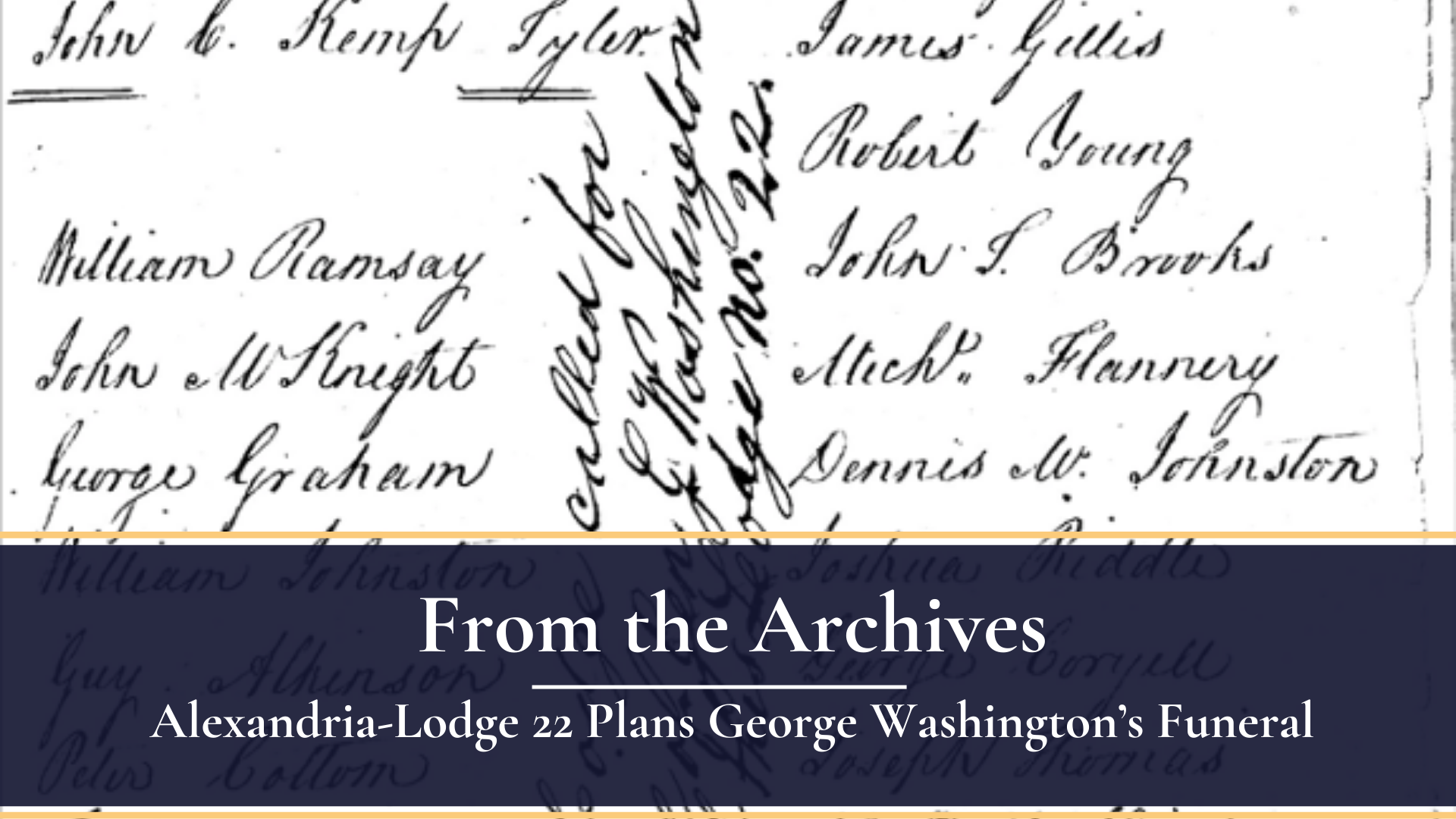
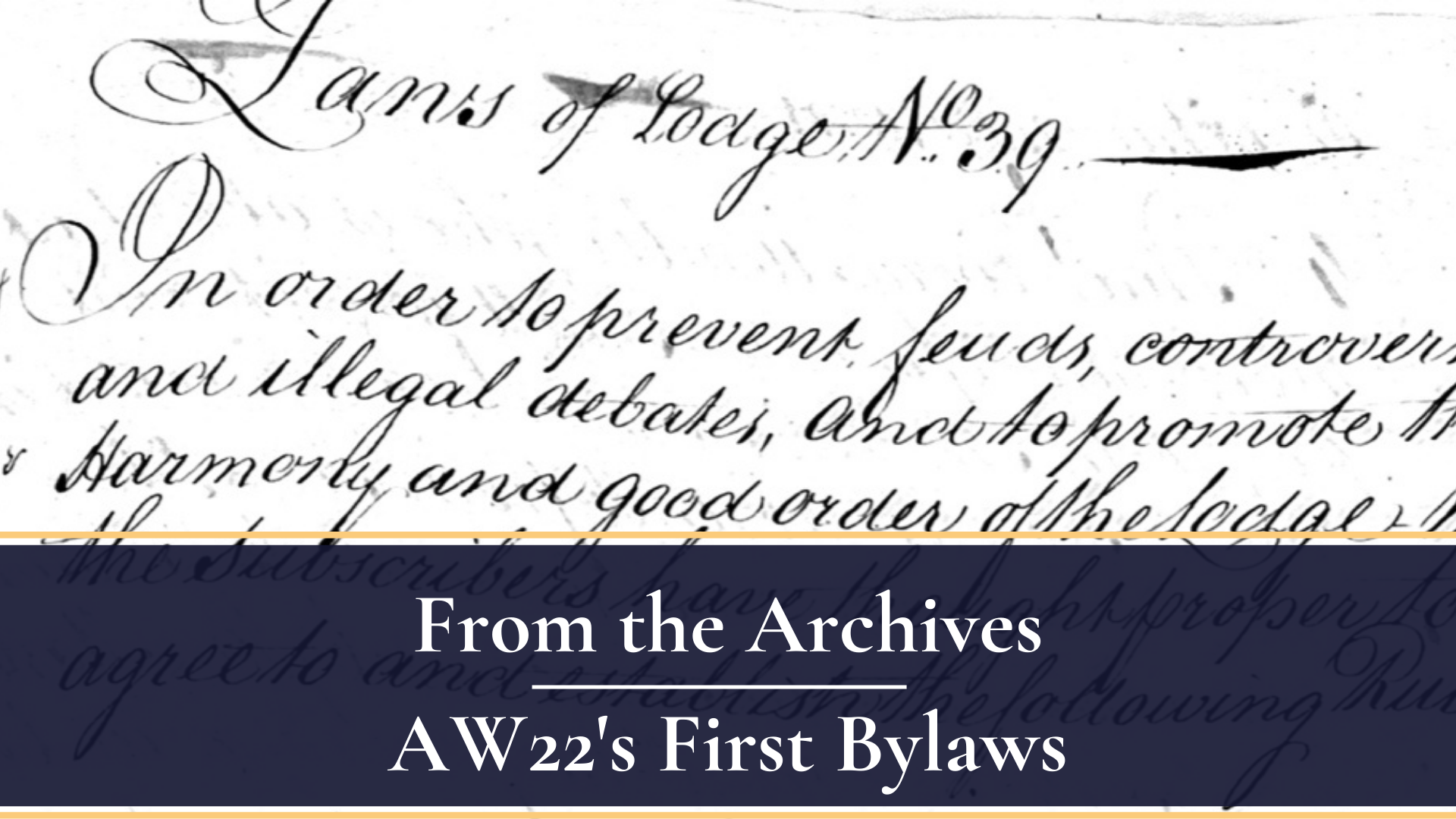
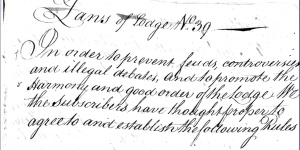
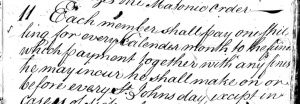
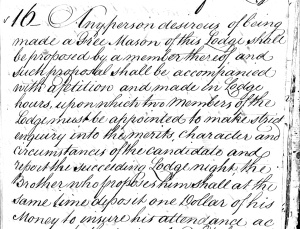
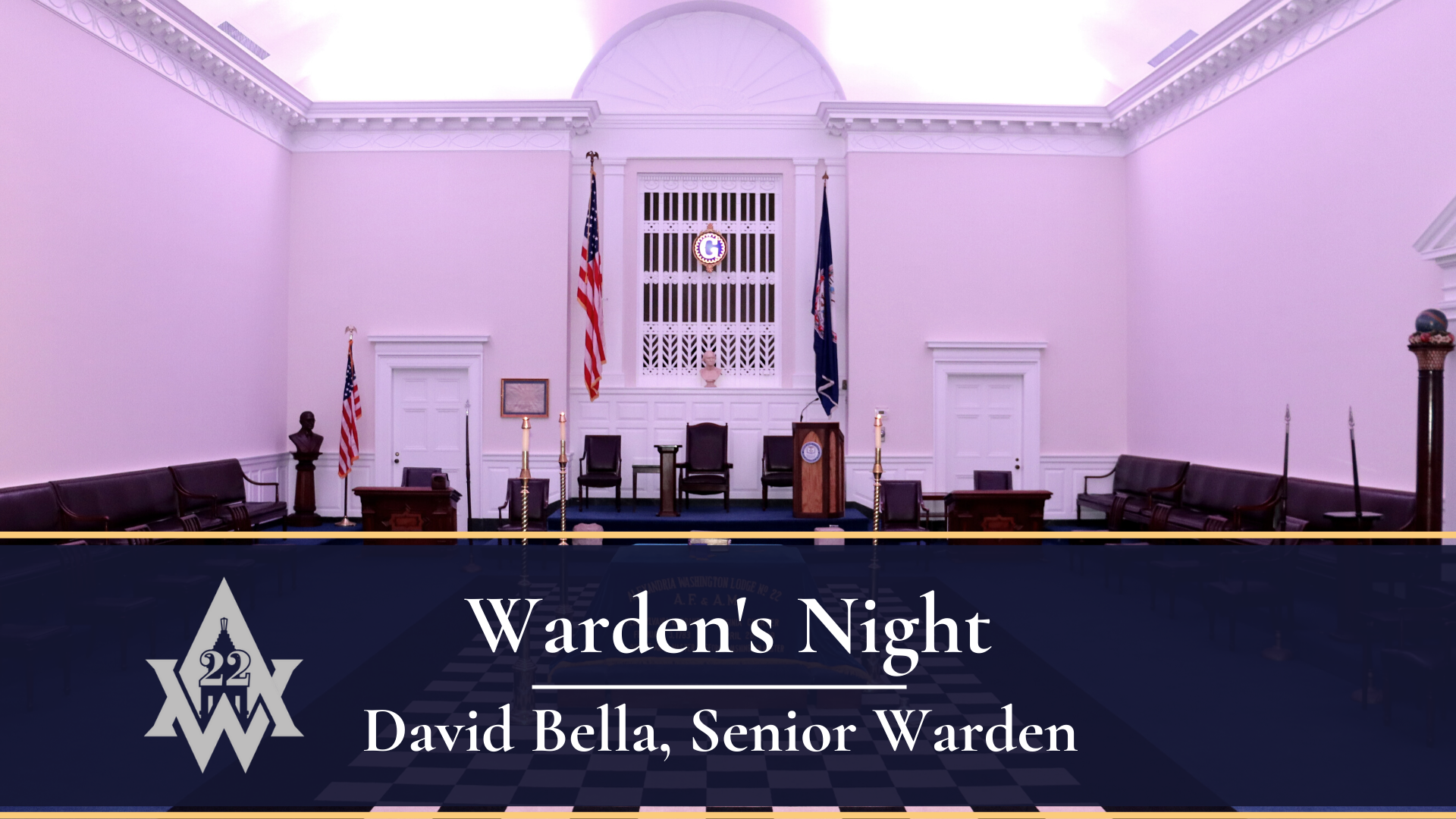
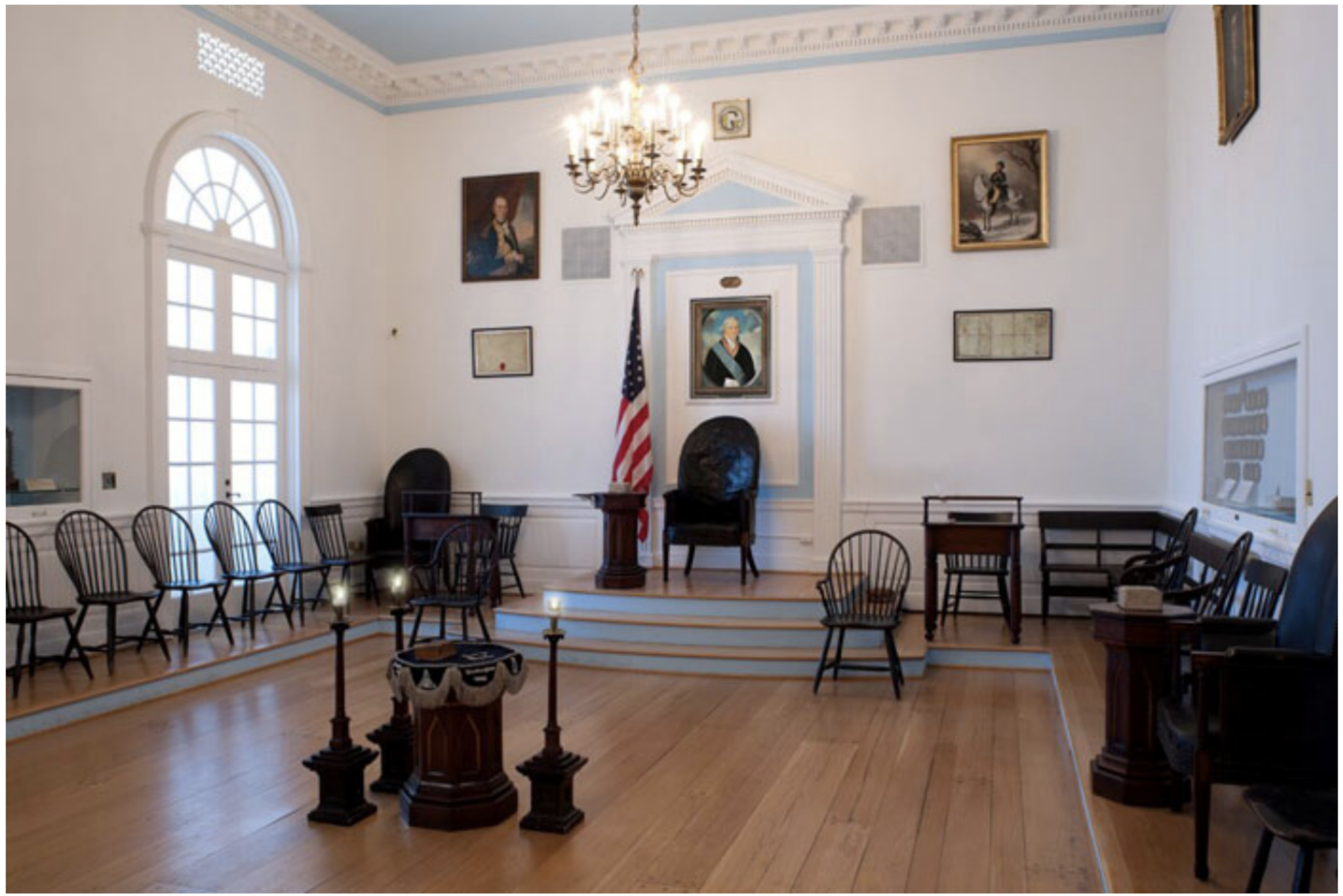
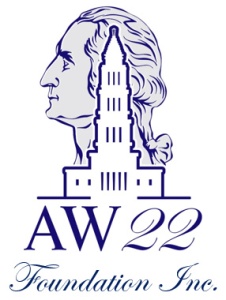 has already demonstrated their support for the Lodge and Foundation thus far. To ensure the financial health of the Foundation, and to support 2023 activities and beyond, we need to double this amount through our Cornerstone Campaign. I challenge each of you to consider how much you might be able to invest in the Lodge’s future. Consider becoming a Charter Member of the Foundation with a $1,000 contribution. Some brothers question why we need to raise this money, especially when the Lodge accounts are not insignificant. The answer is twofold. First, to continue to offer strong programming and high-quality meals at each of our Stated Communications, support Lodge participation in the District Masters and Wardens Association, attendance at Grand Lodge, and participation in the Committee on Work’s Reid J. Simmons Masonic Ritual Academy – among other activities – we need to leave the Lodge accounts as intact as possible. Annually, the Lodge withdraws about three percent of its invested funds to support these activities. Taking a significant chunk from those funds will reduce our annual draw and diminish our capacity for regular activities.
has already demonstrated their support for the Lodge and Foundation thus far. To ensure the financial health of the Foundation, and to support 2023 activities and beyond, we need to double this amount through our Cornerstone Campaign. I challenge each of you to consider how much you might be able to invest in the Lodge’s future. Consider becoming a Charter Member of the Foundation with a $1,000 contribution. Some brothers question why we need to raise this money, especially when the Lodge accounts are not insignificant. The answer is twofold. First, to continue to offer strong programming and high-quality meals at each of our Stated Communications, support Lodge participation in the District Masters and Wardens Association, attendance at Grand Lodge, and participation in the Committee on Work’s Reid J. Simmons Masonic Ritual Academy – among other activities – we need to leave the Lodge accounts as intact as possible. Annually, the Lodge withdraws about three percent of its invested funds to support these activities. Taking a significant chunk from those funds will reduce our annual draw and diminish our capacity for regular activities. 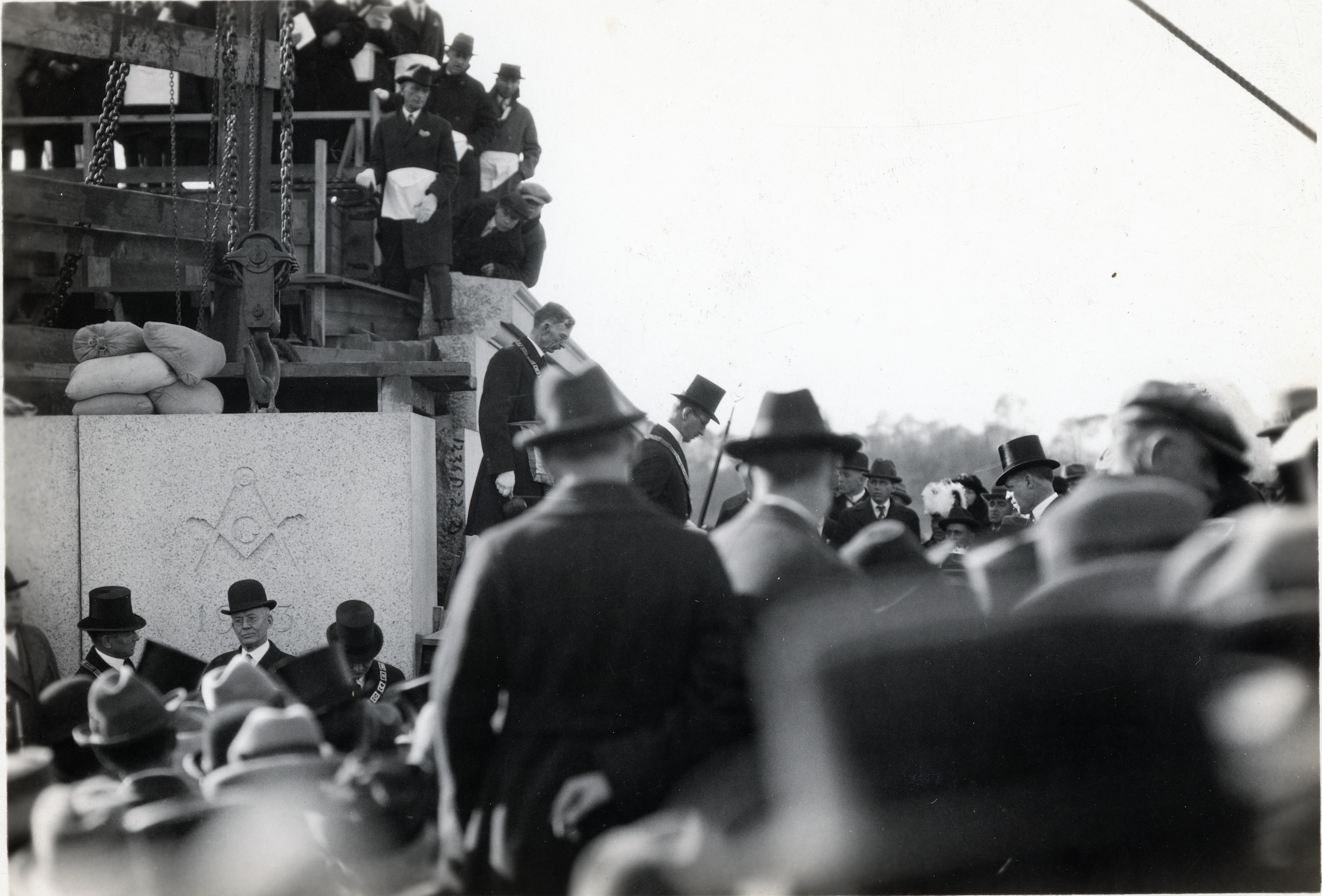
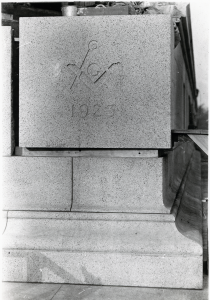 positively impacted generations of Alexandrians. It has been a leader in the international masonic community. And perhaps, most importantly, it has created life-long friendships among its members. There is no denying the lodge they created has blossomed into a truly unique and special institution. Looking around the lodge and at our historical records, I am always struck by the astonishing quality of our members. I believe that the “specialness” of the lodge is in direct parallel to the greatness of our members. Over one hundred years ago, one of the most exceptional generations of our membership banded together to set in motion the construction of the most architecturally impressive masonic structure ever conceived: an august monument to our lodge’s most august member.
positively impacted generations of Alexandrians. It has been a leader in the international masonic community. And perhaps, most importantly, it has created life-long friendships among its members. There is no denying the lodge they created has blossomed into a truly unique and special institution. Looking around the lodge and at our historical records, I am always struck by the astonishing quality of our members. I believe that the “specialness” of the lodge is in direct parallel to the greatness of our members. Over one hundred years ago, one of the most exceptional generations of our membership banded together to set in motion the construction of the most architecturally impressive masonic structure ever conceived: an august monument to our lodge’s most august member. 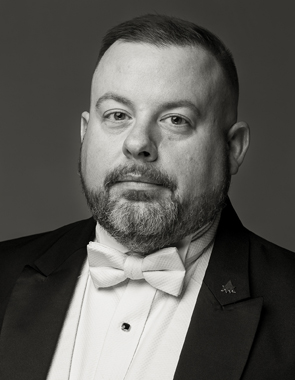
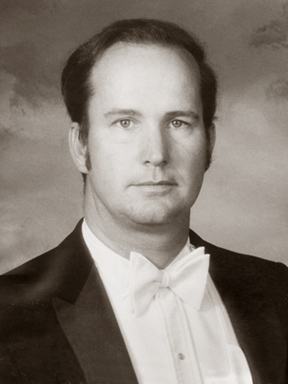

 pandemic, indicating that depression rates are poised to remain high. According to the Centers for Disease Control (CDC), the overall percentage of adults with recent symptoms of anxiety or a depressive disorder increased from 36.4% to 41.5% from August 2020 to February 2021.Considering the challenges we’ve faced as a country and society over the last couple years, including the COVID-19 Pandemic, civil unrest, a contentious election, social isolation, the fact our lives have changed so drastically for such a long period of time and ongoing economic uncertainties, there is little surprise that we would feel some drastic effects on our mental health.
pandemic, indicating that depression rates are poised to remain high. According to the Centers for Disease Control (CDC), the overall percentage of adults with recent symptoms of anxiety or a depressive disorder increased from 36.4% to 41.5% from August 2020 to February 2021.Considering the challenges we’ve faced as a country and society over the last couple years, including the COVID-19 Pandemic, civil unrest, a contentious election, social isolation, the fact our lives have changed so drastically for such a long period of time and ongoing economic uncertainties, there is little surprise that we would feel some drastic effects on our mental health.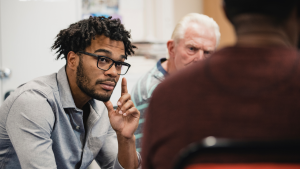 When a Brother reaches out, our first priority should be to listen. This does not mean offering advice or opinions, but instead actively listening to what is being said and offering understanding. According to the Mayo Clinic, listening and understanding can be a powerful healing tool. After that initial conversation, keep an open line of communication and check in often to see how they are doing. Encourage further help and point them towards organizations such as the National Alliance on Mental Illness (
When a Brother reaches out, our first priority should be to listen. This does not mean offering advice or opinions, but instead actively listening to what is being said and offering understanding. According to the Mayo Clinic, listening and understanding can be a powerful healing tool. After that initial conversation, keep an open line of communication and check in often to see how they are doing. Encourage further help and point them towards organizations such as the National Alliance on Mental Illness (